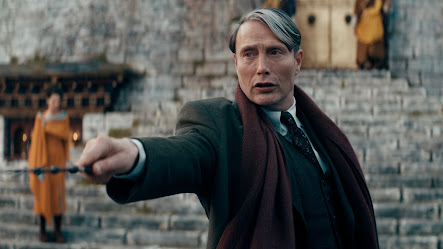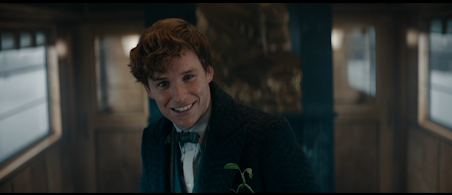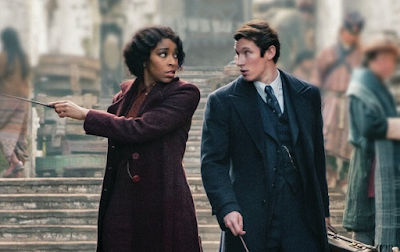Original Title: In Order to Live: a North Korean Girl's Journey to Freedom
Series: -
Author: Yeonmi Park, Maryanne Vollers
Published: September 29th, 2015
Publisher: Penguin Press
I will start by
saying that this was a hard book to rate. The five stars I gave it are
not for the writing or the engaging aspects of it. It’s for the author’s
courage to speak out, and expose the grim realities of a world that,
for many of us, it’s too far away. Something that happens “to others”.
This
story is not like Hyeonseo Lee’s. The Girl with Seven Names is a
fantastic account of the hardships a North Korean defector has to go
through as a consequence of deciding to leave the country. But Hyeonseo
Lee, even though she went through a terrible journey to find freedom,
was older than Yeonmi Park when she defected, she had a strong willpower
and a rebel streak, and her wit, her resourcefulness and her contacts
on the other side helped her to survive. Yeonmi Park, instead, was just a
child when she left North Korea with her mother.
“Maybe deep, deep inside me I knew something was wrong. But we North Koreans can be experts at lying, even to ourselves.”
There
was a moment in which I considered leaving this book unfinished. The
account of Yeonmi’s experience in the terrible, soulless world of human
trafficking, was becoming more than I could take. Women sold as a piece
of property. Yeonmi’s mother raped twice in front of her. Yeonmi herself
abused by her so called Chinese husband. The need to shut off her heart
to survive. Her father’s illness after his arrest, and his death before
reaching true freedom. Her missing sister, who left for China alone and
they spent years without a word from her. The terrible choices she had
to make, between she and other women being trafficked, or being returned
to North Korea to a fate worse than death. The separation from her
family. She saw and experienced things no one should. And much less a
child.
But it’s not
enough that she was a child. She was a child from North Korea, no less.
Innocence and ignorance are a bad combination, but in this case, no
North Koreans are prepared for the world beyond their borders. And human
traffickers take advantage of it.
There was so much in this book
I wanted to quote. The narration is not meant to be gripping like a
thriller book, but it is engaging, raw and honest, like saying “this is
reality, and there’s no way around it”. She doesn’t get graphic, but
it’s not necessary for us to understand what’s happening.
“There
were so many desperate people on the streets crying for help that you
had to shut off your heart or the pain would be too much. After a while
you can’t care anymore. And that is what hell is like.”
I can’t picture
a world in which everything is forbidden. No movies. No music. No phone
calls. No education, only indoctrination. And for that, I’m lucky. My
country may not be perfect, but it’s free, and sometimes we forget the
true value of that. Having grown up with a mind of my own is invaluable.
North Korea’s slavery system works through ignorance. Keeping their
population utterly oblivious to the world beyond their borders is a part
of their strategy to keep them subdued. The only possible love they can
feel has to be for the Dear Leader.
“I had a warm, holy feeling
being in Pyongyang, where the Great Leader once walked, and where his
son, Kim Jong Il, now lived. Just knowing he breathed the same air made
me feel so proud and special—which is exactly how I was supposed to
feel.”
And yet, they
manage to use love as a weapon. If you slip, if you say or do the wrong
thing, not only you will be punished, but also your family. If you love
them, you’ll do as you are told, and keep your mouth shut.
This has to be the plot for a dystopian novel. This can’t be real. I refuse to believe it.
In
this country, people are indoctrinated and brainwashed from their early
life, but reality takes over at some point. And that is when they make
the decision to defect. Yeonmi says that everything needs to be taught,
and she is right, but some things are just pure survival instinct.
There’s a point in which North Koreans realize that something is wrong
about everything they were taught since they were kids. After all,
love for the Dear Leader and hate towards the Japanese, Americans and
South Koreans won’t fill their bellies. They will not light the fire
that will prevent them and their families from freezing to death during
the terrible North Korean winters. They will not give them the treatment
or the medicines they need to avoid dying from diseases that the most
of the countries have already eradicated.
But leaving is illegal.
You are not the owner of your own fate. You have to settle for a life
without future, and just survive. People are born, and immediately
stripped of things they don’t even know or have yet. You grow up in
complete darkness when it comes to your own worth, and your rights.
My heart weeps for North Korea.
I
noticed that the first part of the book is narrated through the eyes of
a child. A child who has seen a lot, yet some of her innocence remains.
There’s mention of the regime but it’s not the main focus in Yeonmi’s
description of life in her hometown. There is a focus on the people, on
the bonds of friendship and family, and how people are what truly makes a
country. Yes, there is an iron fist; yes, there is an authoritarian
regime. But the first part of the book is focused on daily life, on the
comings and goings of her neighbors in the different places she was in,
like Hyesan, the frontier town that allowed her access to her first
tastes of freedom, through smuggled goods from China. This first part is
focused on how people, including her own father, worked and traded to
survive, showing a life that the so called leaders of the country will
never understand. It depicted Yeonmi’s family life, with their internal
struggles and their relationship with each other, and with their
neighbors. It showed the authentic North Korea.
The second part
of the book is absolutely heartbreaking, and not for the faint of heart.
It tells us about the terrible experiences she and her mother went
through once they managed to cross into China, at the hands of human
traffickers. They wouldn’t have imagined that what was coming was worse
than their life in North Korea. Most female defectors have to endure
this, brokers take advantage of their vulnerability and their need to
survive, and buy and sell them as if they were cattle. Yeonmi herself
was trafficked and took part on the business because of the man she was
given to, and later in life, she says she considered herself beyond
forgiveness, even God’s, because of the things she did to survive. But
it was wrong from one of those missionaries in Qingdao to tell her so,
after she confessed her work in the Chinese chatroom. Obviously these
people don’t know the harrowing pain she and her mother went through,
the despair they felt and their willingness to do whatever it takes to
protect each other, and stay alive. God loves us no matter what, and if
we truly want to be with Him, He accept us.
The trek through the
Gobi Desert at night is worthy of a movie. Not only they had to endure
the freezing temperatures and the danger of walking past wild animals,
finding guidance in their compasses, and when they could not see them
anymore, in the stars. They had to hide from any lights that could give
away their position, because being arrested in China means going back to
North Korea, and to a certain death. And this is why both Yeonmi and
her mother started this part of their journey armed with knives, not for
self-defense, but to put an end to their own lives in case they were
caught. This is the kind of thing that you can only understand if you go
through a similar experience. It’s complete and utter despair. And
these are the lengths North Koreans defectors are willing to go just to
be free and not go back to the hell they left behind.
If you don’t feel anything with this, your heart is stone.
Ultimately,
Yeonmi and the other defectors who crossed to Mongolia through the Gobi
Desert, are taken by Mongolian soldiers, and eventually go to Seoul
with the help of the South Korean embassy. South Korea doesn’t return
defectors; they act with understanding and care, and help them resettle,
in a process that involves medical treatment, basic school education,
learning to use new technologies and new language forms, and basically,
unlearning all the pernicious habits and conceptions drilled into their
heads through the overwhelming propaganda of the regime. This is all new
for Yeonmi and her companions.
“I had no idea what a “hobby”
was. When it was explained that it was something I did that made me
happy, I couldn’t conceive of such a thing. My only goal was supposed to
be making the regime happy. And why would anyone care about what “I”
wanted to be when I grew up? There was no “I” in North Korea—only “we.””
Yet, when you have been a slave your entire life, freedom can be overwhelming, and even scary.
“It took me a long time to start thinking for myself and to understand why my own opinions mattered.”
A
passport, a new house, and eating every day, are just the beginning.
Suddenly your mind is yours, and you feel utterly lost, because now you
have a new responsibility.
“I never knew freedom could be such a
cruel and difficult thing. Until now, I had always thought that being
free meant being able to wear jeans and watch whatever movies I wanted
without worrying about being arrested. Now I realized that I had to
think all the time—and it was exhausting. There were times when I
wondered whether, if it wasn’t for the constant hunger, I would be
better off in North Korea, where all my thinking and all my choices were
taken care of for me.”
South Korea’s educational system is not
easy. There’s a lot of content, insanely long hours of study, and a
fierce competition to get to the best universities. But Yeonmi didn’t
give up, and started reading all those books and novels she could have
never found in North Korea, like, for example, George Orwell’s Animal
Farm, an account, though fictional, of her country’s reality. Thinking
for yourself brings new opportunities, and an entire world to discover,
but also requires that you shake off all the lies that you bought your
entire life. But living in South Korea, for a defector, means not only
the need to settle to a new universe, it also means dealing with
prejudice and not exactly a quick acceptance from South Koreans. Yet
Yeonmi kept going, and through studying she did her best to be a better
person, and most of all, to protect her mother, and find her sister.
There’s
not much else I can say, except that just as Hyeonseo Lee, Yeonmi Park
went through hell, but she didn’t turn her back to North Korea, and is
now an activist for human rights. As for her sister Eunmi’s story, even
though I think we all wanted to know what had happened to her after she
crossed the border into China, it’s good that Yeonmi decided to let her
story belong only to her. If Eunmi wants to tell it someday, it will be
her decision alone, and that’s fine.
Yeonmi Park’s story is
heartbreaking and terrible, but stories like hers are worth being
written down and registered. North Korea is stuck in time, and
sometimes, it’s hard to believe that this place, so brutal and ruthless,
is real, and that there’s still people in the world stuck in a mostly
rural country, who don’t know everyday technology, and live where the
law of survival of the fittest prevails. It’s only through people like
Yeonmi Park and Hyeonseo Lee (and many others, of course) that we can
get to know about what really happens inside the most authoritarian
regime in the world, but also, what it means to think for yourself, to
make your own decisions, and not to buy every single lie that is thrown
your way. Basically, to be free, and not taking it for granted.
***
Thank you for reading!
See you soon.
.jpg)





.jpg)
.gif)



















